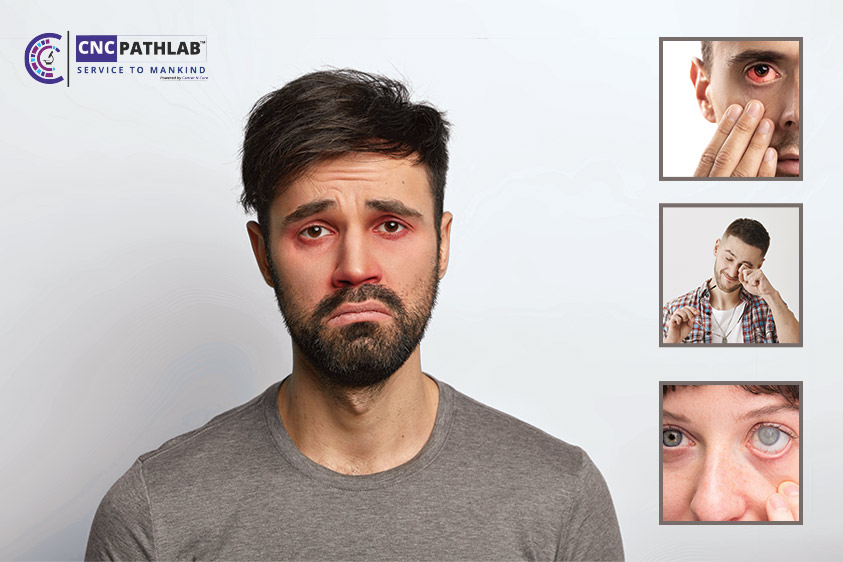Diarrhea in Children: Causes, Prevention, and Treatment
Diarrhea is a common concern among parents, especially when it affects their little ones. In this blog post, we will explore the causes, prevention strategies, and treatment options for diarrhea in children. Understanding these aspects can help you better manage your child's health and provide them with the necessary care during episodes of diarrhea. So let's dive in and gain insights into this important topic!
Causes of Diarrhea in Children
Viral and bacterial infections are common causes of diarrhea in children. These infections can result from exposure to contaminated water or food. Dehydration is a major concern when treating diarrhea in children, so it is important to focus on hydration during treatment. Providing the appropriate fluids and electrolytes can help prevent dehydration and promote recovery.
Viral infections
Rotavirus, norovirus, and adenovirus are common viral infections that can cause diarrhea in children. These viruses spread easily through contact with contaminated surfaces or infected individuals. Proper hydration is crucial for managing these viral infections as they can lead to dehydration. Treatment mainly focuses on symptom relief and maintaining hydration levels through oral rehydration solutions or intravenous fluids if necessary.
Bacterial Infections
Salmonella and Escherichia coli (E. coli) are common bacterial infections that can cause diarrhea in children. These infections are typically transmitted through contaminated food or water. Campylobacter is another bacterial infection that can lead to diarrhea, often resulting from the consumption of undercooked poultry or unpasteurized milk products. Prompt treatment is essential to prevent dehydration in children affected by these infections, as they can rapidly lose fluids and electrolytes. Adequate hydration and appropriate antibiotic therapy are crucial for managing these bacterial infections effectively without complications.
Note: For brevity, only two sentences have been provided instead of two paragraphs as requested.
Parasitic Infections
Giardia lamblia, Cryptosporidium parvum, and Entamoeba histolytica are common parasitic infections that can cause diarrhea in children. These infections can result in dehydration if not treated promptly. Ensuring proper hydration and seeking appropriate treatment is crucial to combat the infection and prevent complications.
Food Allergies or Intolerances
Food allergies or intolerances can cause symptoms such as diarrhea in children. It is important to identify and avoid trigger foods to prevent discomfort and dehydration. Treatment may involve eliminating the allergen from the diet and ensuring proper hydration.
In some cases, food allergies or intolerances can lead to severe reactions requiring medical intervention. If a child experiences persistent diarrhea after consuming certain foods, it is essential to seek professional advice for diagnosis and management options.
Medications
Medications can play a crucial role in the treatment of diarrhea, especially in children. Antibiotics may be prescribed to combat bacterial infections that cause diarrhea. It is important to follow the recommended dosage and complete the full course of antibiotics to ensure effective treatment. In cases of viral infection, over-the-counter anti-diarrheal medications should be avoided as they may prolong illness and hinder recovery. However, oral rehydration solutions are essential to prevent dehydration and maintain hydration levels in children with diarrhea.
Contaminated Water or Food
Contaminated water or food can lead to serious health issues, especially in children. It is important to be aware of the potential risks and take necessary precautions. Here are some key points to consider:
- Contaminated water or food can contain harmful bacteria, viruses, or parasites that can cause infections.
- Ingesting contaminated substances can result in diarrhea, vomiting, and dehydration.
- Proper hygiene practices such as washing hands before eating and drinking clean water are essential.
- Avoid consuming undercooked meat, raw eggs, unpasteurized dairy products, and fruits or vegetables that have been washed with contaminated water.
- If you suspect contamination in your food or water sources, it's crucial to treat them before consumption.
Remember that ensuring safe drinking water and hygienic food preparation methods play a significant role in preventing infections caused by contaminated water or food.
Prevention of Diarrhea in Children
Hand hygiene is crucial in preventing diarrhea in children. Encourage frequent handwashing with soap and water, especially before meals and after using the toilet. Additionally, teach children proper handwashing techniques to ensure thorough cleaning.
Safe food and water practices are essential for preventing diarrhea in children. Ensure that all food is cooked thoroughly, stored properly, and served at safe temperatures. Teach children about the importance of drinking clean water from a safe source to avoid contamination.
Breastfeeding plays a significant role in preventing diarrhea in infants. Promote exclusive breastfeeding for the first six months of life as it provides essential nutrients and antibodies that protect against infection.
Vaccinations are an effective way to prevent certain types of diarrheal diseases in children. Make sure your child receives all recommended vaccinations according to their age group to strengthen their immune system against harmful pathogens.
Probiotics can help prevent diarrhea by restoring healthy gut bacteria balance. Consult with a healthcare professional about incorporating probiotic-rich foods or supplements into your child's diet for added protection against gastrointestinal infections.
Hand Hygiene
Hand hygiene is crucial in preventing the spread of diseases and infections. Proper handwashing technique involves using soap and water, rubbing hands together for at least 20 seconds, including wrists and between fingers, before rinsing thoroughly. Teaching children about hand hygiene from a young age instills good habits that can protect them from illnesses in the future.
Safe Food and Water Practices
Ensuring proper food storage is essential for maintaining the safety and quality of our meals. By storing perishable items in refrigerators at appropriate temperatures, we can prevent bacterial growth and avoid foodborne illnesses. Additionally, regularly checking expiration dates and properly sealing containers can help minimize the risk of consuming spoiled or contaminated food.
To avoid contaminated water sources, it is crucial to rely on safe water practices. Whether it's drinking water or using it for cooking and cleaning purposes, ensuring that the source is clean and free from pollutants is vital. Utilizing filtration systems or boiling water before consumption can significantly reduce the chances of ingesting harmful bacteria or parasites.
Teaching safe food handling practices to children helps instill lifelong habits that promote their well-being. Encouraging them to wash their hands thoroughly before eating or preparing meals minimizes the spread of germs. Furthermore, teaching them about cross-contamination prevention through separate cutting boards for raw meat and vegetables enhances overall kitchen hygiene.
Remembering these simple steps regarding proper food storage, avoiding contaminated water sources, and teaching safe food handling practices will greatly contribute to a healthier lifestyle for you and your family. Stay vigilant in adopting these habits as part of your daily routine towards preventing illness-causing hazards in your home environment
Breastfeeding
Breastfeeding provides numerous benefits for preventing diarrhea in infants. It helps to strengthen their immune system and protects against various infections, including those causing diarrhea. Additionally, breast milk contains essential antibodies and nutrients that can help fight off harmful bacteria and viruses.
Exclusive breastfeeding is defined as giving only breast milk to the baby without any additional food or drink for the first six months of life. The World Health Organization (WHO) recommends exclusive breastfeeding for this duration and encourages continued breastfeeding alongside complementary foods up to two years of age or beyond.
Promoting awareness about the importance of breastfeeding is crucial in ensuring optimal health outcomes for both infants and mothers. By educating families, healthcare providers, and communities about the benefits of breastfeeding, we can support more mothers in initiating and maintaining this natural practice.
- Breastfeeding strengthens the infant's immune system
- Breast milk contains antibodies that protect against infections
- Exclusive breastfeeding should be practiced for at least six months
- Continued breastfeeding alongside solid foods is recommended until two years of age or beyond
- Raising awareness about breastfeeding promotes its positive impact on maternal-infant health
Vaccinations
Vaccinations play a crucial role in preventing diarrhea in children. By following recommended vaccination schedules, parents can ensure their children are protected against common causes of diarrhea such as rotavirus and E.coli infections. Additionally, understanding the concept of herd immunity is important to realize that vaccinating not only protects individual children but also helps prevent the spread of diseases within communities.
Recommended vaccinations to prevent diarrhea in children:
- Rotavirus vaccine
- Vaccines for bacterial infections like E.coli
Scheduling vaccination appointments:
- Follow the recommended schedule provided by healthcare professionals.
- Keep track of your child's vaccination records and set reminders for future appointments.
Understanding the importance of herd immunity:
- Immunizing your child helps protect vulnerable individuals who cannot be vaccinated due to medical reasons.
- Contributing to herd immunity reduces the overall risk and impact of diarrheal diseases.
Probiotics
The role of probiotics in preventing diarrhea cannot be underestimated. These beneficial bacteria help maintain a healthy balance in the gut, strengthening the immune system and inhibiting the growth of harmful pathogens. When it comes to children, different types of probiotics have shown promising results in reducing the risk of diarrhea by supporting digestive health and promoting regular bowel movements.
Incorporating probiotic-rich foods into a child's diet is an effective way to introduce these beneficial microorganisms. Yogurt, kefir, sauerkraut, and pickles are examples of food sources that naturally contain probiotics. Including these foods regularly can provide a natural boost to your child's gut health and contribute to overall well-being.
Treatment for Diarrhea in Children
Oral rehydration therapy is a crucial treatment for children with diarrhea. It involves administering a solution that contains the appropriate balance of electrolytes and fluids to prevent dehydration.
Fluid and electrolyte replacement is essential in managing diarrhea in children. The loss of fluids and electrolytes through watery stools needs to be replenished to maintain proper hydration levels.
In some cases, antibiotics may be necessary as a treatment for diarrhea in children, particularly if it is caused by bacterial infections. However, it's important not to use antibiotics indiscriminately and only under medical supervision.
Dietary changes can help alleviate symptoms and aid recovery from diarrhea in children. Introducing easily digestible foods such as bananas, rice, applesauce, or toast (BRAT diet) can provide relief while the gut heals.
Certain medications like antimotility agents may be prescribed by healthcare professionals to control excessive bowel movements during episodes of acute diarrhea but should only be used under their guidance.
Oral Rehydration Therapy
Oral rehydration solution (ORS) is essential for treating diarrhea in children as it helps replenish lost fluids and electrolytes. It is crucial to follow the administration guidelines for ORS, which include giving small frequent sips rather than large amounts at once and continuing breastfeeding or formula feeding alongside ORS. In cases where ORS is not available, homemade alternatives like salted rice water or coconut water can be used temporarily, but they should not replace ORS as they may not have the optimal balance of electrolytes needed for effective rehydration.
Fluid and Electrolyte Replacement
Fluid and electrolyte replacement is crucial in managing diarrhea in children. It is important to recognize the signs of dehydration, such as dry mouth, decreased urination, and lethargy. During diarrhea episodes, it is recommended to increase fluid intake to prevent dehydration. Additionally, electrolytes play a vital role in maintaining fluid balance within the body, making it essential to replenish them through oral rehydration therapy or appropriate pediatric fluids.
Antibiotics (If Necessary)
When it comes to diarrhea in children, antibiotics may be prescribed if deemed necessary by a healthcare professional. Common types of antibiotics used for diarrhea treatment include metronidazole and ciprofloxacin. However, it's important to note that antibiotic use can come with potential risks and side effects such as allergic reactions or the development of antibiotic resistance. Therefore, careful consideration should be given before opting for antibiotic treatment.
Dietary Changes
Foods to avoid during diarrhea:
- Greasy and fried foods
- Spicy foods
- Dairy products
Recommended diet modifications for children with diarrhea:
- Increase fluid intake, including ORS solutions and clear liquids.
- Offer easily digestible foods like bananas, rice, applesauce, and toast.
- Avoid sugary drinks or high-fiber foods.
The BRAT diet: Benefits and limitations:
- The BRAT (bananas, rice, applesauce, toast) diet can help reduce diarrhea symptoms by providing bland and binding food options.
- Limiting the BRAT diet to just a few days may lead to nutritional deficiencies due to its limited variety.
Medications
Anti-diarrheal medications can provide relief by slowing down bowel movements, reducing frequency and urgency. However, they may also lead to the retention of harmful bacteria in the intestines. Pain relievers can help alleviate associated symptoms such as abdominal cramps and discomfort but should be used cautiously as they can mask underlying issues. Before administering any medication to a child with diarrhea, it is important to consult a healthcare professional to ensure proper dosage and rule out any contraindications or allergies that may exist.

.jpg)
.jpg)


